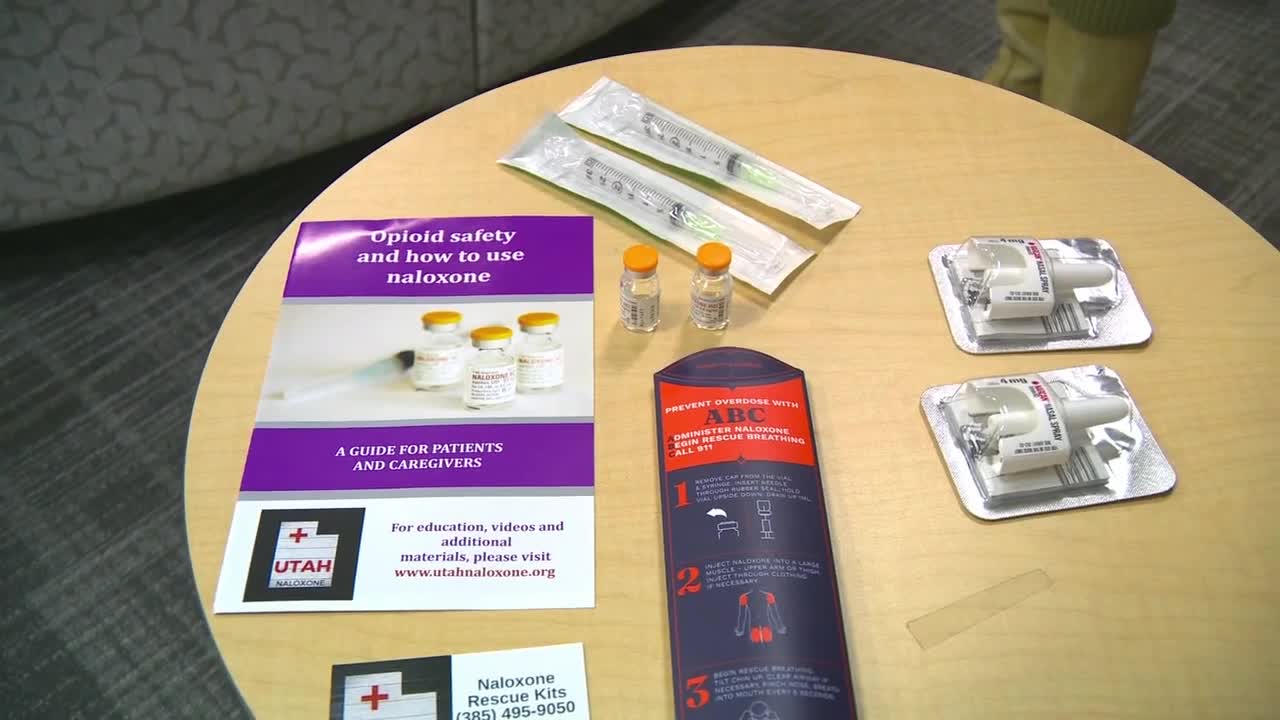SALT LAKE CITY — There are thousands of Utahns who will be celebrating with family and friends this week thanks to overdose reversal medications like naloxone and Narcan — and hundreds of them saved by Utah police officers who had the medication.
But that wasn’t always the case.
A little more than a decade ago, we first told FOX 13 News viewers how an emergency room doctor and a police chief joined forces to ensure officers were armed with Naloxone. It’s been saving lives ever since.
It happened to Diana Duke more than a decade ago — the night she overdosed on prescription pain medication at her mom‘s house.
“She said she was trying to wake me up and I wasn’t waking up and my lips were, that I wasn’t breathing, that I wasn’t anything," she recalled.
Paramedics using Narcan revived her and saved her life.
Around that same time, emergency room physician Jennifer Plumb was pushing the idea of police officers having the life-saving medication. Dr. Plumb is now also a state senator.
“You think of a kid, drowning in a pool or a pond, you want the first person there to bring them out," Plumb said. "Same exact thing — opioid overdose, you’re not breathing and you've got to get them breathing. First person there should do that.”
But for a variety of reasons, many police administrators were hesitant.
Then Plumb met Cottonwood Heights Police Chief Robby Russo.
“They were the first agency in the state," Plumb said.
Russo was very receptive to the idea of his officers having and administering Narcan when needed.
“She helped draft policy. She was our medical oversight on our program," Russo said of Plumb.
Russo says it just made too much sense.
“In cases where someone has overdosed and they don’t have oxygen to the brain, two or three minutes can save a life," he said.
And just days after his officers were trained, Russo says one of them used Narcan to revive an overdose victim and save their life.
Plumb says other police agencies quickly joined on.
“We’re aware of over 80 agencies now; we’ve trained most of them," she said.
As a result, Plumb says they are approaching 1,200 life-saving overdose reversals thanks to police officers deploying Narcan or naloxone.
Russo says he’s proud to be part of it.
“We had to change the culture a little bit, but it happened and we’re grateful it happened," Russo said. "We’ve had a lot of great success and a lot of families are together this season.”
And as devastating as the opioid epidemic has been in Utah, Plumb says overall, Narcan and naloxone have helped save more than 13,000 overdose victims over the past decade or so.




